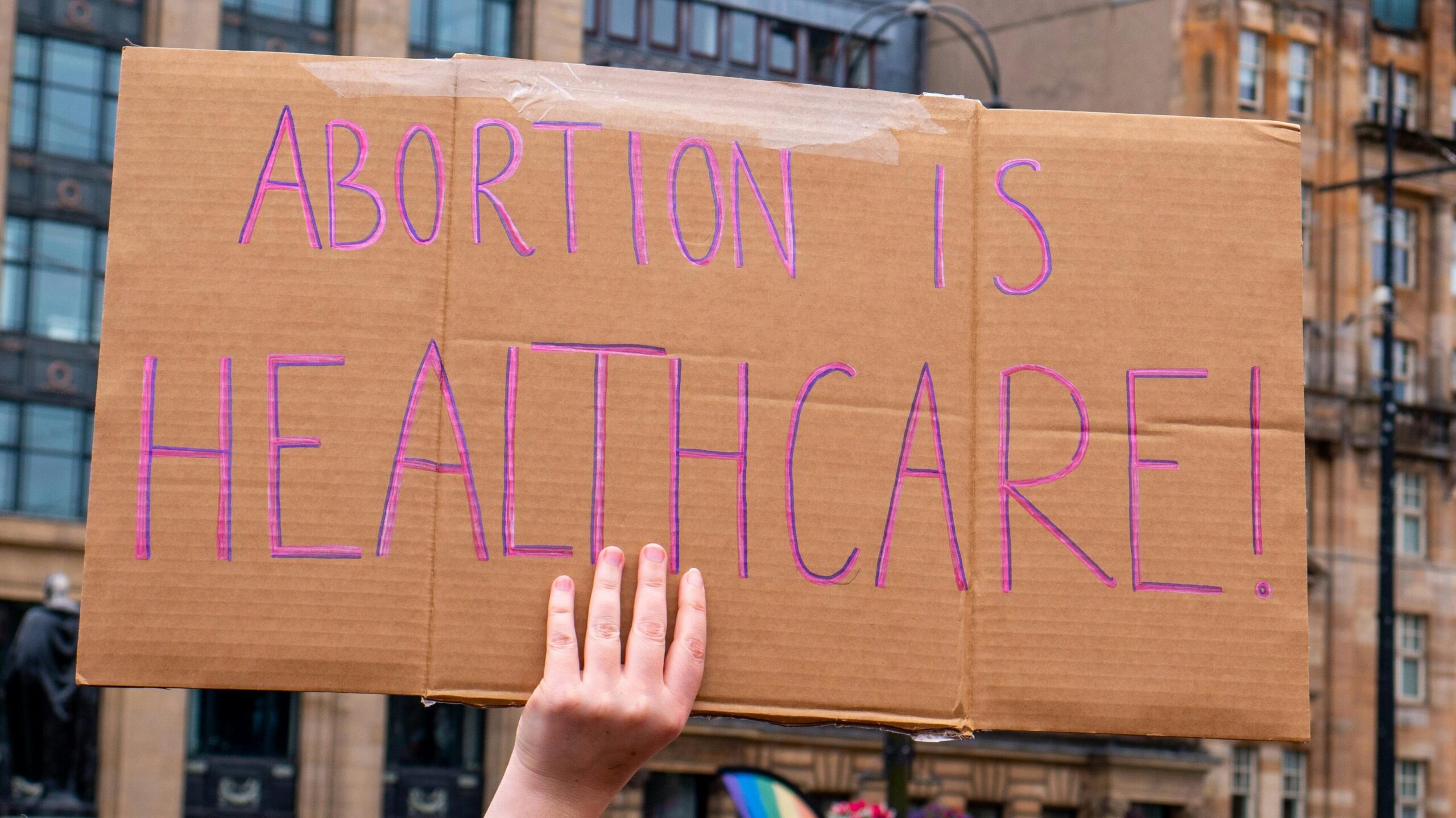
“All we say to America is, ‘Be true to what you said on paper.'” When Dr. King spoke these words, he captured a fundamental truth about our nation’s struggle with democracy—the gap between our stated ideals and our lived reality. Today, as reproductive rights face unprecedented challenges, his call for the US government to honor its promises rings with renewed urgency.
Let’s talk about what has been promised to US citizens. A nation where all citizens enjoy equal protection under the law. A democracy that represents the will of its people. A country where your rights shouldn’t depend on your zip code or your bank account.
Yet we’re witnessing a devastating divide between these democratic ideals and the harsh realities facing millions of US residents seeking reproductive healthcare.
Here’s what makes this moment in our nation’s history so pivotal: While 64% of US voters support reproductive rights, access to essential healthcare continues to shrink. State by state, restriction by restriction, we’re watching fundamental rights slip away—rights that most people believe should be protected.
This forces us to confront an important question about who we are as a nation: Are we living in an 1857 Dred Scott kind of country, where rights and citizenship are carefully rationed privileges? Or are we truly a 14th Amendment nation, where “equal protection under the law” means exactly what it says?
The surveillance of pregnant people, the criminalization of healthcare providers, and the steady erosion of privacy rights paint a scary picture of the current state of the United States.
The Digital Police State is Already Here
History teaches us that authoritarian control doesn’t arrive dramatically. It creeps in through seemingly routine surveillance, through the quiet erosion of privacy, through the gradual acceptance of tracking our neighbors.
One of FUNKY BROWN CHICK, Inc.’s partners of German descent, whose mother survived the Holocaust, warns that “Americans don’t know what fascism is.” She’s not speaking abstractly. While some embrace authoritarian “strong man” politics as a solution to their grievances, they overlook the brutal realities that follow: systematic surveillance, restricted movement, disappearances—and yes, death squads. Today’s digital surveillance state offers a preview of how quickly “law and order” becomes something far more sinister.
Right now, in the United States, law enforcement can access your private Facebook messages about reproductive healthcare. Just ask the Nebraska teenager sentenced to jail after police obtained her private conversations about ending a pregnancy (Read more about that in Act II, page 5 of our white paper, “The Three Acts of Justice.”).
Think that’s an isolated incident? Think again. Police departments across restrictive states are photographing license plates at health clinics, building databases of who seeks care. Your period tracking app? That intimate data about your menstrual cycle could be subpoenaed or sold, transforming a helpful health tool into evidence against you.
This isn’t dystopian fiction. It’s happening in our backyard. When the state monitors your messages, tracks your movements, and transforms your personal health data into potential evidence, we’re watching democracy crack under the weight of digital surveillance. The tools meant to connect us, inform us, and help us manage our health have become weapons in the arsenal of reproductive oppression.
What makes this moment in history particularly scary is how ordinary it all seems. No dramatic headlines announce the death of privacy rights. Instead, they dissolve in the quiet ping of a text message, in the silent snap of a license plate photo, in the routine logging of personal health data. Meanwhile, communities already struggling with limited access to healthcare face a terrible choice: risk surveillance or forgo care entirely.
From Problems to Power: Three Acts of Justice

At FUNKY BROWN CHICK, we don’t just highlight problems—we build solutions. That’s why we spent two years creating “Three Acts of Justice: Past, Present, and Future in Reproductive Rights,” a comprehensive roadmap that breaks down our democratic crisis into three transformative acts: the past that shaped us, the present we’re fighting through, and the future we’re building together.
Want to know what fighting back looks like? Turn to Act III where we reveal how abortion funds in Minnesota and California receive donations from supporters worldwide through secure online platforms. Follow the story to learn how doctors provide essential healthcare through telemedicine, reaching patients in abortion deserts. Explore how cybersecurity experts collaborate with reproductive justice advocates to create surveillance-proof digital tools.
The legal landscape? Act II shows how Reform Jewish communities are leading the charge, challenging abortion bans as violations of religious freedom. Their argument flips the script: if we truly believe in religious liberty, one interpretation of Christianity can’t dictate healthcare for all Americans. These innovative legal strategies create blueprints for other faith communities to follow.
Throughout all three Acts, we document the surge in grassroots organizing. Black-led reproductive justice organizations, immigrant rights groups, and climate activists are joining forces, understanding that our struggles interlock. Because let’s be real—the same communities targeted by surveillance often face food insecurity, environmental racism, and immigration barriers. That’s why our solutions must be as interconnected as our challenges.
When we say intersectional, we mean it. Real reproductive justice requires dismantling every system that limits bodily autonomy. Whether it’s defending abortion access, fighting for clean air, or protecting immigrant families, these battles share common ground.
Making the United States True to Its Paper Promises
Dr. King knew something profound about our country: our founding documents aren’t just paper promises—they’re a blueprint for liberation. When 64% of Americans support reproductive rights while state legislatures restrict access, we’re not just facing a healthcare crisis. We’re witnessing a test of our democracy’s core promise: that all Americans deserve equal protection under the law.
But here’s the beautiful truth: every day, Americans choose which version of democracy we’ll build. When Reform Jewish communities assert their religious freedom, when doctors innovate to reach patients in need, when grassroots organizers build coalitions across movements. That’s the US being true to what it said on paper.
Want to be part of this transformation? Download “Three Acts of Justice” and discover how cybersecurity experts, legal innovators, and community organizers are already building real solutions.
Together, we’re building a democracy that matches its ideals with action. Join the movement. Let’s make this democracy real.
